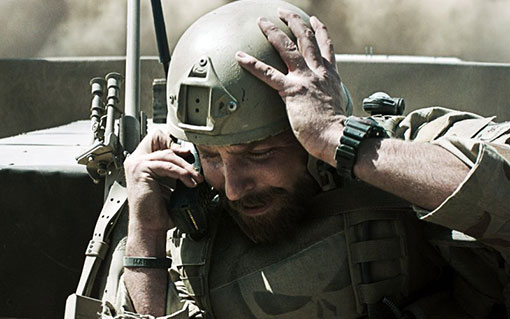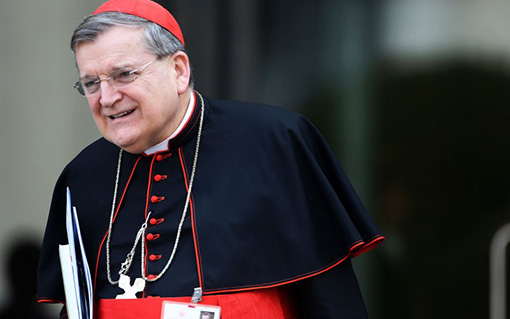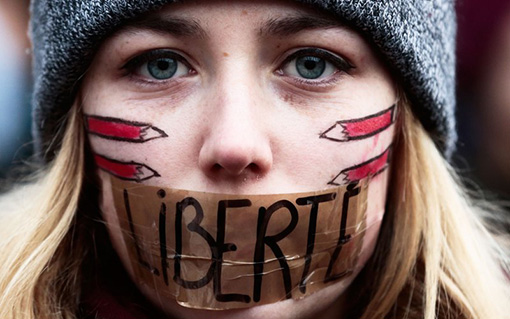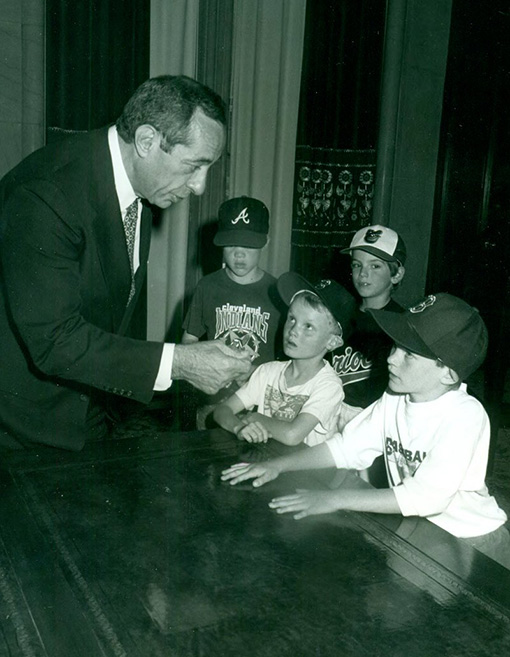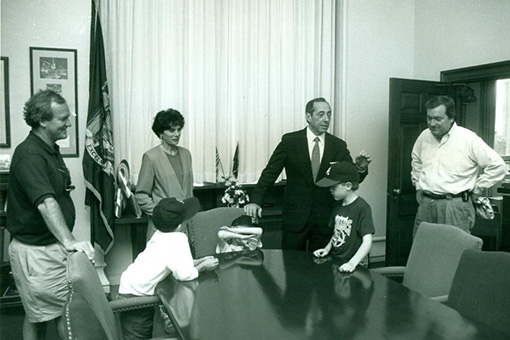On Morning Joe live from Phoenix, Mike Barnicle and NBC Sports commentator Al Michaels, who is announcing the play-by-play of NFL Super Bowl XLIX, discuss the tremendous impact of televised football. “There has never been a game in this country more well suited to television than professional football,” says Mike. Watch their conversation here.
“There is a skills gap in this country in large part because of the lack of access to education… There is a subset of people, low to moderate income families, that can’t afford to have their child proceed to higher education. How do you attack that?,” asks Mike Barnicle of Gregory Cappelli, CEO of Apollo Education Group, which manages several for-profit educational institutions. Watch the conversation as it happened during a special primetime edition of Morning Joe, live from Phoenix.
On a special live broadcast from Phoenix, home of Super Bowl XLIX, Mike Barnicle joins Hardball with Chris Matthews to discuss the high risk of brain injuries in football. “The media chooses to focus on Deflategate, but one of the great obscenities that the NFL was involved in were the reparations—if you can call them that—to players who were injured … They low-balled them in the settlement,” says Mike of the issue in the league. Hear the rest of Mike’s insights here.
Lost in the right/left debate over the new Clint Eastwood film is how few Americans fought this century’s wars, and how the suffering of their families has often gone unnoticed.
During the course of any normal day I usually pay more attention to assembling a grocery list than I do to reading movie reviews, although there are a more than a few film critics who bring huge insight to their work. A.O. Scott of the Times, Joe Morgenstern of the Wall Street Journal and Ty Burr of the Boston Globe are always in my lineup.
But for the past several days it’s been interesting to scan the landscape of different views surrounding American Sniper, the Clint Eastwood-Bradley Cooper film about the life of Chris Kyle, a Navy SEAL who grew up in Texas and served his country – that’s us as in the United States of America—during four tours in Iraq, a war that has managed to mangle two nations, ours and theirs.
Like nearly everything else—a ball game, a rock concert, a political debate—anyone who buys a ticket or takes the time to watch instantly becomes a critic. And today, with twitter and texting and all the other tools we have literally at our fingertips, a debate quickly turns into a cyber-space brawl.
People on the left go back and forth with those on the right about the movie’s merits. Is it pro-war? Is it anti-war? And while a platoon of professional essayists, film aficionados and all around ‘I’m smarter-than-you’ folks attack one another’s opinions, there seem to be a couple items that have been forgotten along the side of the long road we’ve traveled for 15 years—15 years!—in Iraq and Afghanistan.
The most obvious is the lack of attention paid to the fact that only about one percent of our population has borne the weight of war. Then there are the families left behind while those fighting are deployed multiple times to both theaters—Iraq and Afghanistan—breaking the military and too often breaking those who sit state-side, worrying, waiting, while 99% of everyone around them dances through the day without any real prospect of danger or death knocking on their door.
In a lot of the reviews of American Sniper that obvious fact is not mentioned. Instead there is amazement at how popular the movie has been since it was released nation-wide a week and half ago, wracking up record box-office returns.
But a strong case can be made that Eastwood and Cooper have produced one of the few films that go beyond an attempt to put the reality of war on a big screen. That is an impossible venture. Nothing can ever come close to the actual violence, fear, noise, clamor, courage, carnage, and the mind altering, lingering, lasting damage done by war to those charged with fighting it.
Yet there is a scene in Sniper that gets to what veterans of wars carry forever and what that burden has meant to all those who wore the uniform from Cemetery Ridge, Somme, The Bulge, Iwo Jima, Chosin Reservoir, Hue City, Mosul, Helmand Province and hundreds of other spots scarred by war: the scene in which Bradley Cooper and his son are in a garage waiting to pick up their car.
The boy is approached by a young Marine who lost his leg in Fallujah. He tells Chris Kyle’s child that his dad is a true hero who saved his life and the lives of other Marines through the devastating skill of his marksmanship, a sniper watching over the constant danger on the urban battlefield below.
Cooper barely moves, hardly utters a line. Instead, the toll of who he is and what he has done and what he must surely never want his little boy to endure is in his eyes and on his face, a portrait of inner pain he wrestles with daily.
A friend of mine who worked on American Sniper for months and attended several screenings in places as different as Dallas, Los Angeles, New York City and Washington D.C. had an interesting observation that mutes some of the ideological ‘wars’ that have consumed multiple critics conducting operations from the safety of their laptops and iPhones.
It revolved around the scene where Chris Kyle sights, shoots and kills the major-league caliber Iraqi sniper from a distance of more than a mile away. In a sand storm.
At a screening in L.A. and New York, the crowd cheered. In Dallas there was no cheering. And when the film was screened at one site in Washington there was only a heavy silence.
Where was that location? Walter Reed National Medical Center, where the wounded, the limbless, the brain damaged are treated for injuries that linger forever and are largely forgotten by a country and a culture where more attention is paid to deflated footballs than the needs and cost of caring for men and women who fought in Iraq and Afghanistan.
American Sniper is a movie. War is a grim reality and with us still.
https://www.thedailybeast.com/articles/2015/01/25/what-american-sniper-gets-right.html
Mike Barnicle asks Richard Haass, President of the Council on Foreign Relations, about immediate U.S. policy options in dealing with the recently deposed government of Yemen. “You’re forced to have a counter-terrorism strategy rather than a creative political strategy,” says Richard Haass. On Morning Joe.
In light of the passing of Saudi Arabia’s King Abdullah, Mike Barnicle asks NBC Foreign Correspondent Ayman Mohyelden about the country’s neighboring challenges. “Saudi Arabia is actually facing several existential threats,” reports Ayman on MSNBC’s Morning Joe. Listen to the exchange here.
On Morning Joe, Mike Barnicle and sportswriter Bob Ryan discuss the Bill Belichick mindset and the New England Patriots’ preparation for the Super Bowl. “The tortured mind of Bill Belichick is that he is a detail oriented person to the max… and nobody who has followed his career can believe that he is so ignorant about the game day preparation of the most important thing in the game, the football,” says Bob Ryan. Hear the rest of their conversation here.
On Morning Joe, Mike Barnicle asks Tim Pawlenty, former Republican Governor of Minnesota, about the possibility of the Republican-majority Congress governing productively. “The correlation between winning elections and getting stuff done recently isn’t high,” answers Gov. Pawlenty. Watch the conversation here.
“There are no success stories in the Middle East,” says Mike Barnicle of President Barack Obama’s State of the Union address that made little mention of terrorism there and the future of the region. Hear the rest of Mike’s Morning Joe comments here.
“There was no need to do that, if indeed it’s proven that the Patriots on orders from someone deflated balls, but they’ve already lost in the court of public opinion,” says Mike Barnicle on Morning Joe about the current controversy surrounding the New England Patriots and the footballs they used in the game. Hear the rest of the conversation from MSNBC.
Pope Francis demoted the reactionary Burke, but that hasn’t stopped him popping off about how the Church panders to radical feminism.
Cardinal Raymond Burke is a 66-year-old guy who lives in Rome, dresses like Queen Elizabeth, and talks like someone who majored in misogyny at some bogus, backwoods, Bible-banging tent school. Until Pope Francis stripped him of the powerful Vatican post Pope Benedict had handed him, Burke behaved like the Catholic Church’s version of Ted Cruz, operating with an ego and an attitude that proclaimed him to always be right on matters of doctrine and dogma.
Burke’s new post makes him the equivalent of a head waiter at the annual Knights of Malta Communion breakfast, but the demotion has only emboldened him. A few days ago the former archbishop of St. Louis was interviewed by some pamphlet geared to restoring guy-talk in Catholicism, and Burke did not disappoint.
“Unfortunately, the radical feminist movement strongly influenced the Church, leading the Church to constantly address women’s issues at the expense of addressing critical issues important to men,” Burke told the correspondent from a pamphlet called (get this) The New Emangelization.
“Sadly,” he pointed out, “the Church has not effectively reacted to these destructive cultural forces; instead the Church has become too influenced by radical feminism and has largely ignored the serious needs of men.”
As I read Burke’s manifesto on his desire for more arm-wrestling, towel-snapping, locker-room guys to play larger roles in Catholicism, a couple of thoughts went round and round in the carousel within my noggin: those attending mass today in too many American parishes resemble people sitting around the day-room of an assisted living facility. God love them but they are old, committed, and slowly disappearing.
The church in the United States is not exactly a growth industry. Parishes are being closed or merged. There are too few priests and not exactly a lot of people lining up for a vocation that requires and insists on celibacy.
The second, almost immediate thought was of a woman I knew quite well whose husband died young, leaving her with a few children and an absence of both money and employment in a struggling New England factory town where the paper mills and textile plants were heading south at a pace that soon left Main Street looking like abandoned property.
She buried her husband on a bitter cold December morning two days before Christmas during John F. Kennedy’s first year in the White House. She could curse in Gaelic and pray in Latin.
She had no job, but quickly, within weeks of her husband’s death, she began working at the rectory of the large Irish parish where the church steeple was just about the highest point in town, built by other immigrants in the 19th century as a bold statement announcing their arrival. She did the priest’s laundry, washed and ironed altar linens and vestments, and prepared lunch and supper for four or five priests, two of them veterans of World War II.
She took home less than $60 a week. She went back to school, enrolling in one of what was then called a “teacher’s college” in the old Massachusetts community college system.
After she got her diploma she began teaching fourth and fifth grade at the parish parochial school, where she remained for three decades. She went to mass every day of the week and prayed nearly as much as she breathed. When her youngest boy was in Vietnam she became a daily communicant, a routine that continued after his war service ended.
Her faith was stronger than steel. Her belief that God was all-knowing and forgiving was unshakeable. She was in the forgiveness business and had a deep understanding of human frailty, an insight that never left her until she died at 93.
I called her “my mother the nun.”
So when I read Raymond Burke clowning it up with his bogus beliefs that the Catholic Church has lost a few steps because of the absence of “manly men,” I could hear Mom muttering, “pol’thoin” (asshole) to describe him. That description would have been applied for many reasons but the biggest would be the most obvious: Burke is a guy whose most firm belief is in himself and his own pronouncements.
The cost of his gilded, ornate vestments could feed a family of four across a decade. He has exhausted himself and more than a few who have had to listen to him trying to ban pro-choice politicians from receiving communion. He has attacked St. Louis University basketball coach Rick Majerus for attending a Hillary Clinton rally and tried to prevent Sheryl Crow from giving a concert to raise money for a Catholic hospital.
Last year, as Pope Francis began turning the lights back on within a church that has seen legions depart simply because so many in the clergy said so little about the criminality and obstruction of justice surrounding the reality of sexual abusers wearing roman collars, Burke said, “There is a strong sense that the Church is like a ship without a rudder.”
Raymond Burke: Member of the College of Cardinals and captain of a ship of fools.
On Morning Joe, Mike Barnicle asks New York City Police Commissioner William Bratton about the particulars and status of the department’s intelligence unit. “There’s no city in the world better prepared to prevent [terrorism] and, if we were to have an event, to respond,” says Commissioner Bratton of New York City. Hear all the details here.
Speaker (John) Boehner has my respect. We have an opportunity to work together and I hope we’ll do so,” says U.S. Rep. Steny Hoyer (D-MD) about hopes of congressional bipartisanship in 2015. Watch the congressman respond to Mike Barnicle’s questions on Morning Joe.
On Morning Joe, Mike Barnicle and NBC News Terrorism Analyst Michael Sheehan discuss the failures in French security and intelligence and worries of similar terrorist scenarios in the U.S. “I was really waiting for the shoe to drop in Europe before I became concerned about the U.S.” says Michael Sheehan. Hear more of what they discussed here.
Mike Barnicle and Christopher Dickey, Foreign Editor of The Daily Beast, talk on Morning Joe about mosques accused of preaching violence. “We have to differentiate between [Muslim] anger and violence because there is a gap there, and that’s part of what keeps us as safe as we are,” Dickey said. Watch more of their conversation here.
“What would be a bigger priority, to continue the economic growth that seems to be picking up a bit of steam in this country for working people… or this obsession that some in the House have with dismantling Obamacare?,” Mike Barnicle asks Sen. John Cornyn (R-TX), current Majority Whip, about the Republican-majority Congress’ priorities in 2015. Hear the Senator’s answer on Morning Joe.
It all started back in November 1979. We couldn’t do much about extremism then, and it seems we can do even less now.
By early November 1979, America was exhausted. The ever-shrinking president, Jimmy Carter, had been attacked by a rabbit while running and that July had taken to the television to tell us the country was suffering from a breakdown, that a malaise had seized the land.
Interest rates looked like major league batting averages. Long lines formed at gas stations because Saudi Arabia and OPEC decided to yank the chain of “The Great Satan” by slowing oil production and exports. A meltdown at the Three Mile Island nuclear facility had threatened to turn half of Pennsylvania into a green night light.
Then, on Nov. 4, 1979, the forebears of the three murderers killed last week in Paris by police gathered in a mob outside the American embassy in Tehran, stormed the building, captured nearly all inside and held 42 citizens of the United States hostage for 444 days.
Both ABC News’ Nightline with Ted Koppel and our modern age of terror were born. A lot has happened between then and now: In October 1983, 220 Marines were killed in Beirut by suicide bombers claiming to represent some outfit they called Islamic Jihad, with more Marines dying that day than had been killed in the first week of the Tet Offensive in February 1968. Embassies in Africa were attacked over the next decade. In October 2000, the USS Cole was blown up while at port in Yemen, killing 17 U.S. sailors. Through all of it, threaded between each attack, was the whispered name of Osama bin Laden. Then came September 11.
Now we have the latest assault on civilization: Paris, where the casualty list is filled with the innocent who, once again, died simply because they went to work. Cartoonists, writers, police officers, shoppers, caught and killed by three men driven insane by their own inadequacies.
“These guys were barking mad,” former Sen. Bob Kerrey said the other day. “But whenever something like this happens we always hear and read about the roots of youth disenfranchisement in the Middle East and there is a lot of that, too much of it. Too much unemployment and hopelessness. No doubt about it.
“But guess what: There is a lot of youth disenfranchisement in Latin America and right here in the United States and they’re not walking around killing people in the name of their religion.”
Bob Kerrey served two terms in the United States Senate. He was a member of the Senate Intelligence Committee and, later, the 9/11 Commission.
“The fact is that Muslim leaders are going to have to face up to the violence that is smearing and staining their religion,” Kerrey was saying. “In too many parts of the world, religious leaders are standing in pulpits on Friday night suggesting that violence is OK.
“And what they’ve done and what they continue to do is give rise and reason to a whole new army. It’s not like it used to be in ‘the old world’ as we once knew it. They don’t wear uniforms in their army anymore. The war is all up there in their head, and it’s going to take a long time for us to combat that.
“I don’t know if the Muslim leadership can face it but that’s the reality of their task. They have to address the cancer within, publicly and loudly.”
Over the past few days, the streets of Paris and many other cities around the world have been filled with people standing in outrage over the slaughter that occurred in the offices of the French magazine Charlie Hebdo. That is where the now-dead Kouachi brothers walked in with the nonchalance of mailmen and opened fire on the staff because of cartoons that had appeared in the magazine’s pages. The thought of turning the page or not buying the book was apparently too much for their diseased minds to grasp.
So today the phrases “Je suis Charlie” and “I am Charlie” ring the globe. Yet it has somewhat of a hollow echo because in some quarters, especially in America, the threat to speech, no matter how offensive and the cartoons in question were clearly on the border of outrageous, is bold and quite present. Former New York City Police Commissioner Ray Kelly was recently booed from the stage and prevented from speaking at Brown University, where he was going to talk about policing and protecting our largest city; “Je suis Ray Kelly?”
This war on terror that now engulfs the world, this clash of cultures and civilizations, this riot of religious zealotry that has claimed far too many while unfairly maligning too many of its members, has been a weight we’ve carried and conducted for decades. Drones and SEAL Team Six and all the battalions of stable nations combined can only combat it to a draw. No military weapon in the arsenal is capable of killing a disease, a warped ideology wrapped and camouflaged within a religion hijacked and used by stone-cold, mentally ill killers who arrive with gun, bomb, and suicide vest proclaiming a false cause.
https://www.thedailybeast.com/articles/2015/01/11/a-war-that-will-not-end.html
On NBC Nightly News with Brian Williams: The trial of the accused Boston Marathon bomber gets underway with jury selection. Mike Barnicle shares his thoughts on the city’s reaction. “They want it to be over and done with,” says Mike about Bostonians’ feelings toward the trial. Mike, an NBC contributor and former longtime Boston Globe columnist, spoke with NBC’s Justice Correspondent Pete Williams. Watch Williams’ segment here.
His ambition for himself wasn’t great enough (he should have run!), but his ambition for America was as noble as a politician’s could be.
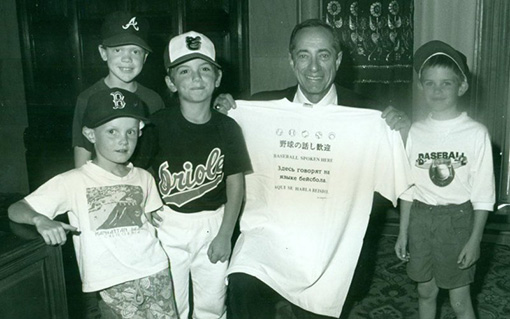
I looked up to Mario Cuomo the first time I ever met him. He was standing in the batter’s box at Joe DiMaggio Park in the North Beach neighborhood of San Francisco on the July morning of the day he was scheduled to deliver the keynote address at the 1984 Democratic National Convention later that evening.
It was a softball game that had been assembled by Herb Caen, the iconic San Francisco Chronicle columnist, and Tim Russert had suggested to Cuomo that he ought to drop by for an at-bat to show a pack of hung-over newspaper guys he still had a little game in him. Caen was pitching and I was crouched behind the dish, catching. Marty Nolan, Dave Nyhan, Curtis Wilkie, Tom Oliphant, and myself, all from the Boston Globe, were in the field as the Governor of New York took off his suit jacket, handed it to Russert, rolled up his sleeves and grabbed a bat in a manner that indicated he had done the same thing many times before.
I still remember the first words I ever spoke to him too: “Hey Governor, you’re wearing cop’s shoes,” as he stood there, a pair of black cordovans on his feet. I don’t recall his reply but I do remember he laughed while he took a couple practice cuts, his thick hands gripping the bat lightly.
Caen threw. Cuomo swung. And the ball came off the bat like a laser, streaking over second base on a line, landing on the asphalt outfield, splitting the fielders and rolling all the way to a far concrete wall.
Cuomo never moved. Simply dropped the bat, retrieved his jacket, watched the ball keep rolling, smiled and said, “ Thanks for taking it easy on me Herb.”
Now, he’s gone and his words are being recalled and repeated in the many tributes being written and recorded as if his speeches contained the singular substance of the man. But Mario Cuomo was so much more than well-crafted phrases. He was a living, quite visible and vocal reminder of the soul, the heart, the strong spirit behind the greatest story ever told: the American dream.
One year after he effortlessly lined that shot into left center field at Joe DiMaggio Park, he was in Cambridge where he gave the Class Day address at Harvard graduation ceremonies. And what he said on June 5, 1985 fits the mood of the moment three decades later.
“America was born in outrageous ambition, so bold as to be improbable. The deprived, the oppressed, the powerless from all over the globe came here with little more than the desire to realize themselves. They carved a refuge out of the wilderness and then, in 200 years, built it into the most powerful nation on earth. A place that has multiplied success for generation after generation of its children. I’m one of those children.
“…We built an America of great expectations…We struggled to provide those things for everyone. For brown, black, and white. For every state and every region and every town. We, the people, created a government that enabled us to do together, as a country, what no one of us could do so well – or at all – by ourselves…We reached out constantly to include the excluded…We did it hesitantly at times – sometimes reluctantly – but gradually – inexorably – we always moved toward the light.”
Today, many feel as if that ‘light” is no longer a 100-watt bulb but, instead, a cost-saving 50-watt where more than a few of us simply have to live in shadows. But that was never Mario Cuomo. He was a dreamer, an idealist, grounded in the reality he observed around him. A practical man who refused to run from the dreams that always drove him. A soldier in the service of ideals and aspirations that formed his core. A governor, a politician, a national figure? Sure, all of those and more but something else, something bigger, was his constant moral compass and focal point of any conversation I ever had with him: His family, your family, the idea that almost anything – any trouble, any ill, any hope – could be explained or outlined in the framework of a neighborhood, global idealism defined as if the world were one big block.
At times, Mario Cuomo seemed to have the humility of a Jesuit and the goals of an emperor. He had a big-picture view of life and politics that was framed forever by beliefs instilled in him by his parents, his faith and his unswerving loyalty and love for his wife, his daughters, and his two boys, whom he spoke of as if they were queens and kings. He sought and received any parent’s ultimate reward: the success and happiness of his own children.
So now it is a warm June day in 1992. Tim Russert and I are driving back to the Albany airport after taking our kids to the baseball Hall of Fame in Cooperstown. We call the governor to see if he’s got time for a visit.
Our kids were seven and eight years old and were without a clue that only months before a whole political party had clamored for Cuomo to run for president. The governor’s office looked larger than a football field to the little boys, but when they walked in, it wasn’t Governor Mario Cuomo who was there to greet them. Instead, it was Mario Cuomo, father, baseball guy, who was there for them with his smile, his laughter, his warmth and a flood of baseball trivia questions.
One of the kids had a ball in his hand, and Cuomo took it and tossed it back and forth to an eight year old. The kids had a gift for him too, a tee shirt with ‘Baseball Spoken Here’ stenciled across the front. And he had a gift for them: the lasting memory of time spent with a man who was bigger than the big dreams he had for those little children.
Across all the years, whenever I’d bump into him in New York City or speak with him on the phone, he’d always inquire about those boys, where were they in school, how were they doing in life. Whatever frustrations or disappointments he felt about politics never surfaced. Only an optimism rooted in his own sense of self and the route that had taken him from a home where his parents did not speak English to a position on our national landscape where his own voice and his own words could make people believe that the dream he lived could be theirs too, if only we listened and paid attention to who and what we really are as a country.
In July 2004, Cuomo was interviewed by his old pal, Tim Russert, for Tim’s CNBC show. Here is a snapshot of who Mario Cuomo was:
Tim Russert: Do you wish you had run for president someday?
Mario Cuomo: No
Russert: Never?
Cuomo: No. I don’t think I was good enough to be a president and you – you know, I – I really – I remember an editor – I won’t share his name but you can guess who it is. He was at The Times, and he says, ‘I don’t think you got the fire in the belly.’ I said, ‘Show me a politician with fire in the belly and I’ll spritz his mouth with seltzer.’ I said, ‘Who – who wants fire in their belly? That’s ego.’ I – I never felt that way about the presidency, as you – as you probably know. I – to – to say to yourself, Tim, that you’re better than all the other people out there who are available to lead this country, and therefore much of the world, that takes a little more self confidence than I ever had, I think. “
Mario Cuomo wasn’t wrong about too many things in his life. But he was wrong right there.
https://www.thedailybeast.com/articles/2015/01/04/mario-cuomo-always-moving-us-toward-the-light.html
On Morning Joe, marking the 70th anniversary of the D-Day invasion, Mike Barnicle tells the story of the Bedford Boys, 19 young soldiers from a small Virginia town who lost their lives in the battle that spelled the beginning of the end for Hitler’s Third Reich.
